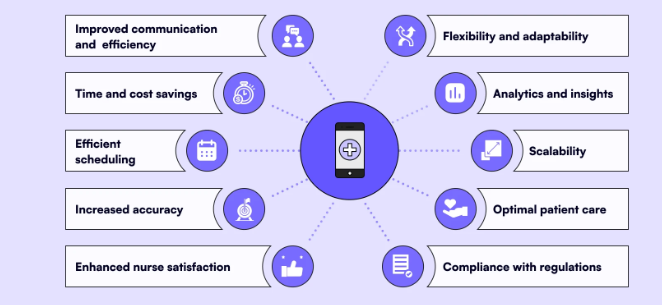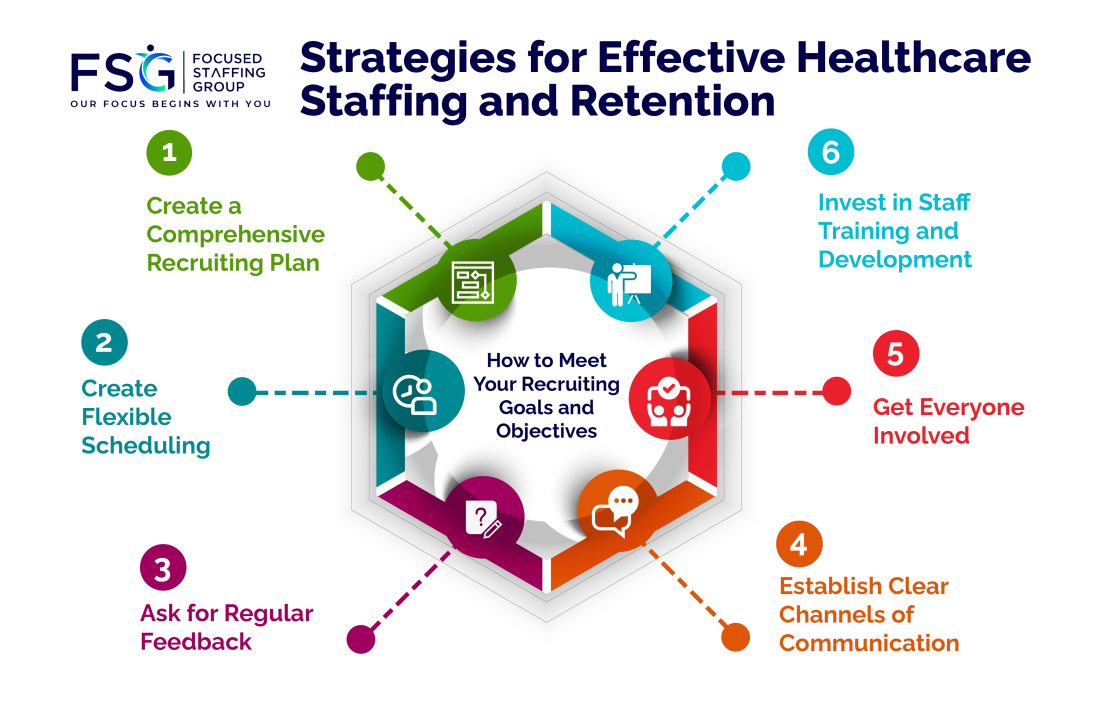With the healthcare sector becoming one of the fastest growing ones in recent years, healthcare staffing has become a key issue. More often than not, healthcare facilities like large hospitals and clinics delegate the recruitment process to staffing agencies. Hospitals and staffing agencies share a symbiotic relationship where the agency supplies the facility’s staffing needs and, in turn, grows as a business.
Alongside this and the growth in technology, we are seeing more software, such as home health care management software, being created to complete certain tasks more efficiently and help those who work in the industry to be more productive.
Why are Staffing Agencies becoming more and more popular?
Delegating recruitment has become common in most industries. However, in healthcare staffing, agencies can connect the right facility with the right candidate far more efficiently than a hospital could do its recruiting.
With the healthcare sector struggling with a huge demand and supply gap, staffing agencies are poised in an advantageous position to satisfy the sector’s staffing needs. They have the potential to fulfill a key need in modern society – that of having healthcare facilities staffed with people possessing the correct skill sets.
Some Key Features of Healthcare Staffing Agencies
Image: Solguruz
- As mentioned earlier, healthcare staffing is the need of the hour. Thus, staffing agencies are also in great demand since most large facilities delegate their recruiting process to these agencies.
- Since there is such a huge demand for healthcare staff, starting a recruiting agency makes great business sense and has a very high chance of success.
- Staffing agencies must take great care in building their database of skilled candidates and checking individual credentials for authenticity. They should not skimp on background checks because it takes one unsuitable candidate to ruin an agency’s reputation.
- Healthcare often involves life-and-death situations, so it is extremely important to match a vacancy with a candidate with the correct skill set.
- Since healthcare is a growing sector, with an aging population likely to need some form of healthcare in the near future, staffing agencies are here to stay. Their demand is unlikely to diminish in the coming years.
- Staffing companies must strive to meet or even exceed industry norms. The ideal strategy for outperforming the opposition is to do this.
- Entrepreneurs should also conduct extensive market research and cost analysis to understand their place in the enormous healthcare sector and what business practices to adopt.
Starting a healthcare staffing agency is a lucrative business option with the right research and effort. However, entrepreneurs should also consider their social responsibility when they venture into this arena.
Best Practices for Healthcare Staffing in Staff Retention
Employee retention may increase continuity and consistency of treatment, save costs and hazards associated with worker turnover, and improve the organization’s brand and image. Numerous things, including pay, recognition, feedback, growth, engagement, culture, and more, can have an impact on it. For healthcare staffing companies, it is crucial to put certain best practices for employee retention into effect. Among these recommended techniques are:
Provide competitive remuneration packages.
These packages should contain bonuses, incentives, perks, and pay, among other things. Staff members find them to be a primary source of motivation and attraction. Offering competitive remuneration packages that either meet or exceed market rates and appropriately recognize the worth and contributions of your employees is crucial.
Reward and give feedback to employees regularly
These are two key factors that stimulate and improve employee performance and happiness. When a staff member makes an effort to grow, contribute, or achieve something new, you should regularly recognize them and provide them with feedback. By providing them with constructive comments, you can assist them in recognizing their chances, challenges, strengths, and limitations.
Provide chances for career development.
These can take the form of instruction, training, coaching, mentorship, education, certification, advancement, and more. They are among the primary sources and markers of employee development and potential. Provide career development chances to your employees so they may learn new skills and get new jobs, certificates, and expertise.
Promote staff participation and engagement.
Staff involvement and engagement measure how engaged and invested employees feel in their work and company. They are one of the key reasons for and results of staff loyalty and commitment. Fostering a collaborative, communicative, and participatory work atmosphere is a good way to increase employee engagement and involvement. Asking for and acting upon comments, ideas, and feedback from the team is also a smart idea.
Create a strong organizational culture
An organization’s common values, beliefs, customs, and behaviors influence and direct employee behavior and performance. By creating a strong organizational culture that embodies your vision, purpose, goals, and beliefs, you can ensure that your staff identity and alignment are really unique. Encourage your employees to work toward a culture of quality, diversity, trust, and respect at the same time.
Establish a Robust Employer Brand
When professionals come across your job postings, they will investigate your company to see if they want to apply. In order to get potential applicants to pick you over the competition, it is your job as a healthcare recruiter to demonstrate that your practice is well-known, respectable, and trustworthy.
Make sure that your website, social media accounts, reviews, and other online platforms appropriately convey the values and ethos of your company in order to do this. Say so if you value the mental and physical wellness of your staff members as well as a close-knit team environment!
Prospects should genuinely observe your basic principles in action, even though they may only want to hear about them. Testimonials from your clients assist you in demonstrating that you value individuals and their requirements.
Conduct in-depth Interviews
When the time comes to interview a candidate, you must plan a comprehensive strategy. Healthcare workers’ industrial experience would not be disclosed anymore by questioning them about it, unlike it was on their resumes. Rather, concentrate on soft skills to have a better understanding of how they apply their professional expertise in real-world situations.
For instance, you may inquire about their teamwork skills or how they would react to typical difficulties.
Keep in mind that interviews for jobs in the healthcare industry are frequently bilateral. As the new hire seeks to understand how well this employment will meet their needs, make sure to include details about prospects for advancement, salary, daily responsibilities, etc.
Conclusion
The process of staffing a healthcare facility is complex and challenging, requiring careful planning, execution, and evaluation. Providing healthcare organizations with qualified, accessible, and adaptable healthcare professionals may help them meet their staffing demands, challenges, and objectives. It also helps healthcare professionals find diversified, meaningful, and satisfying jobs that fit their interests, skill set, and aspirations.
Before making a decision, though, one must weigh the expenses, dangers, and obligations associated with healthcare personnel. Thus, before selecting a healthcare staffing solution that will satisfy one’s needs and expectations, it is crucial to conduct some research and weigh one’s possibilities.

